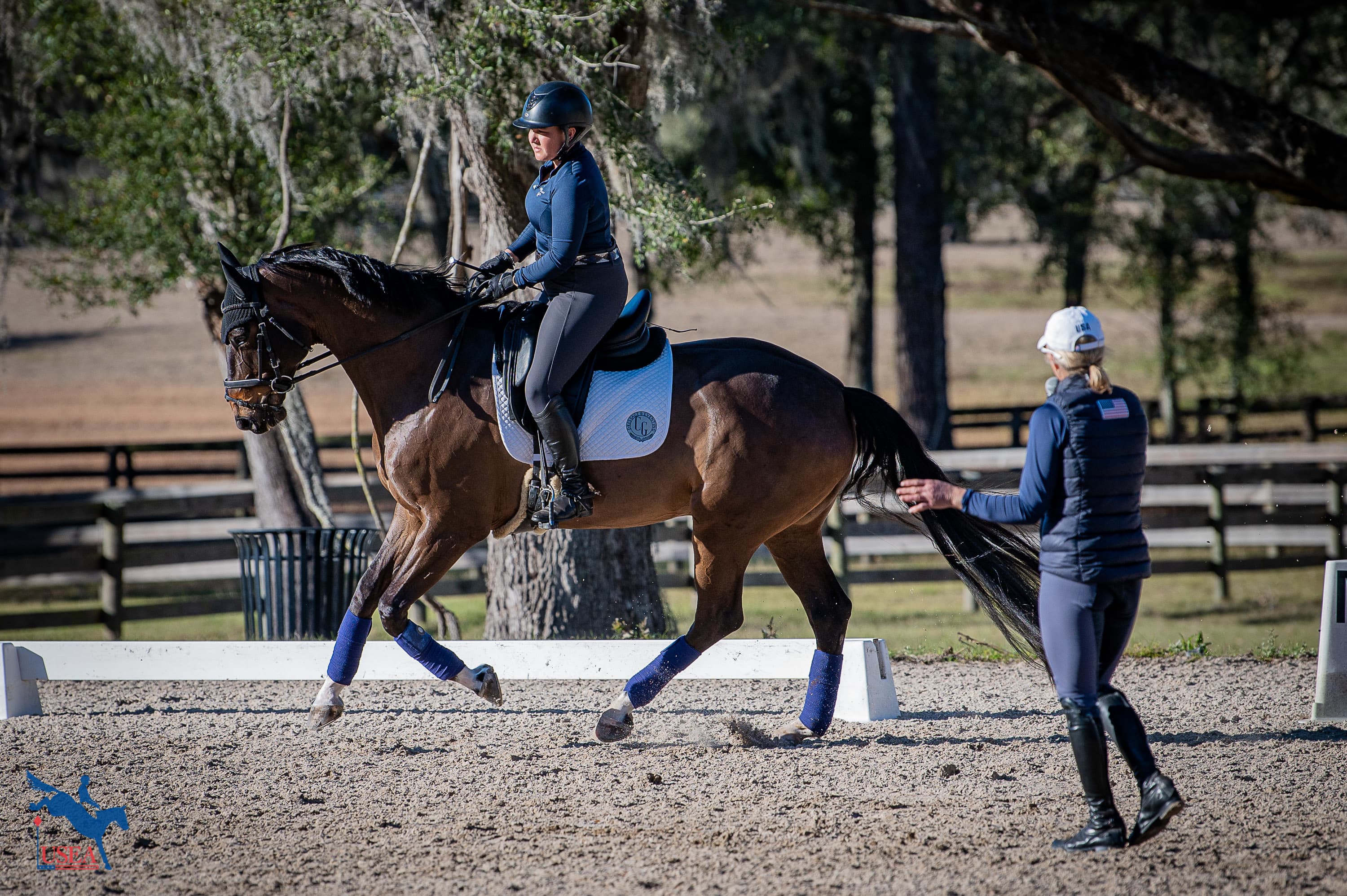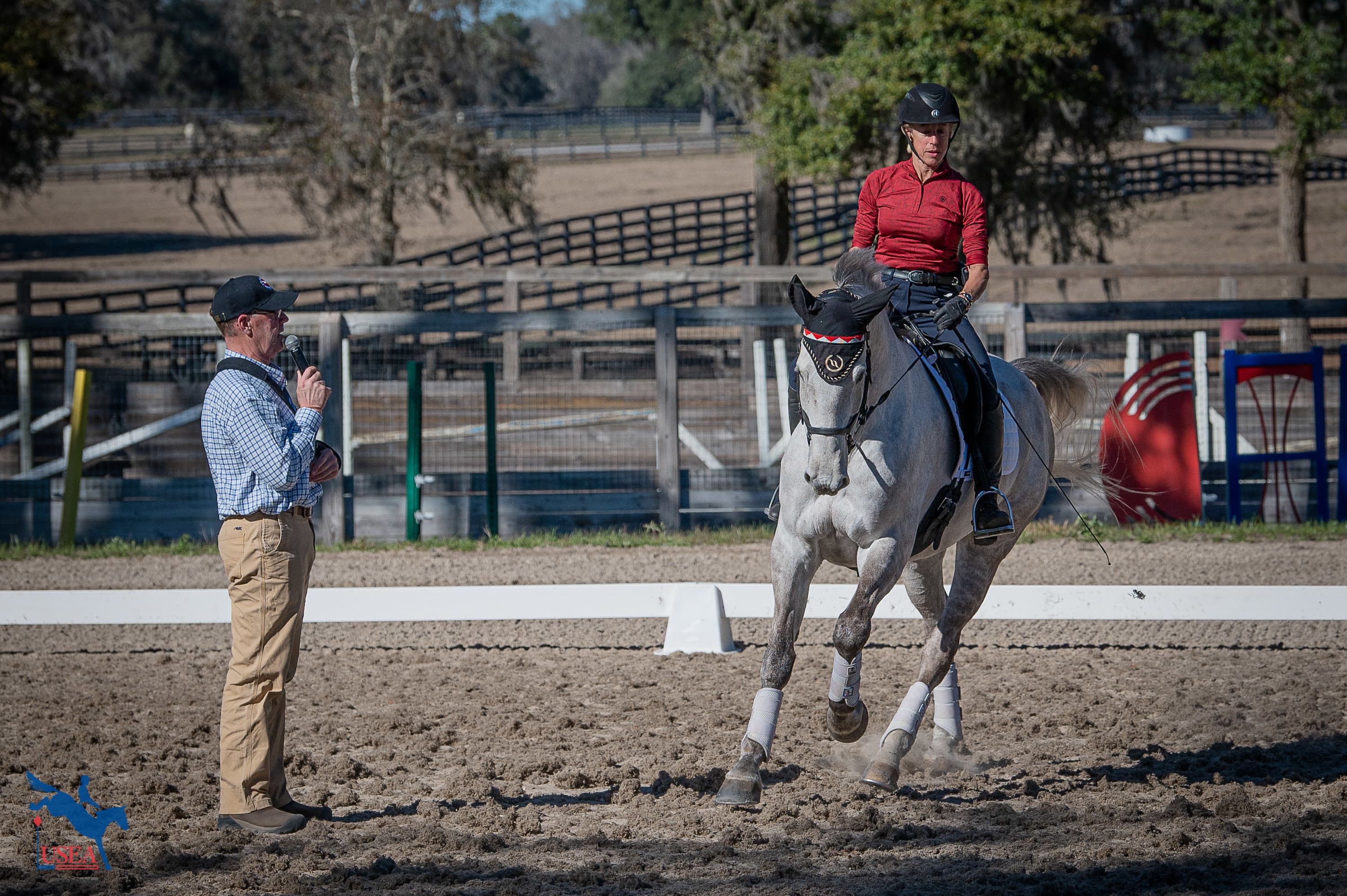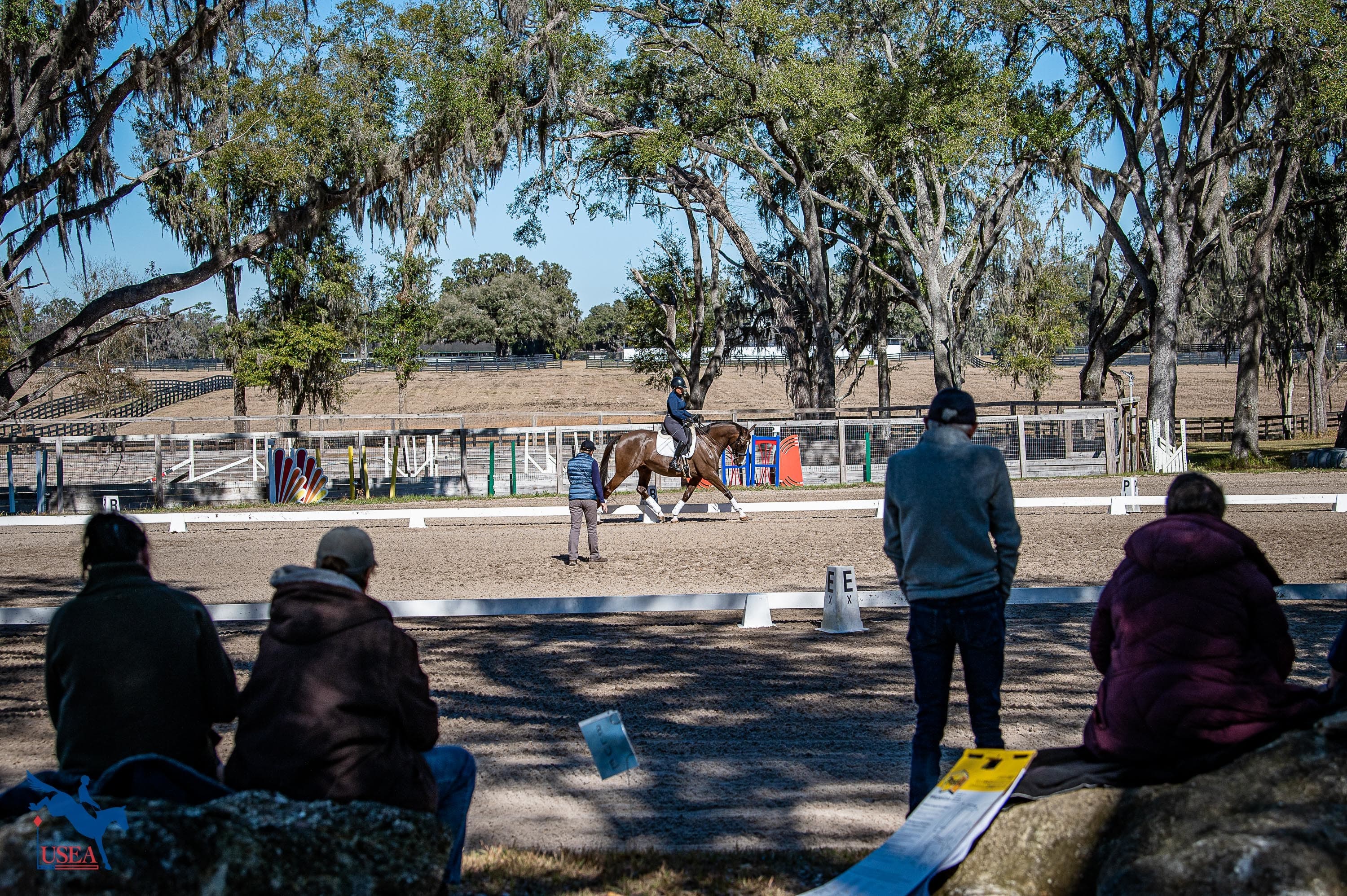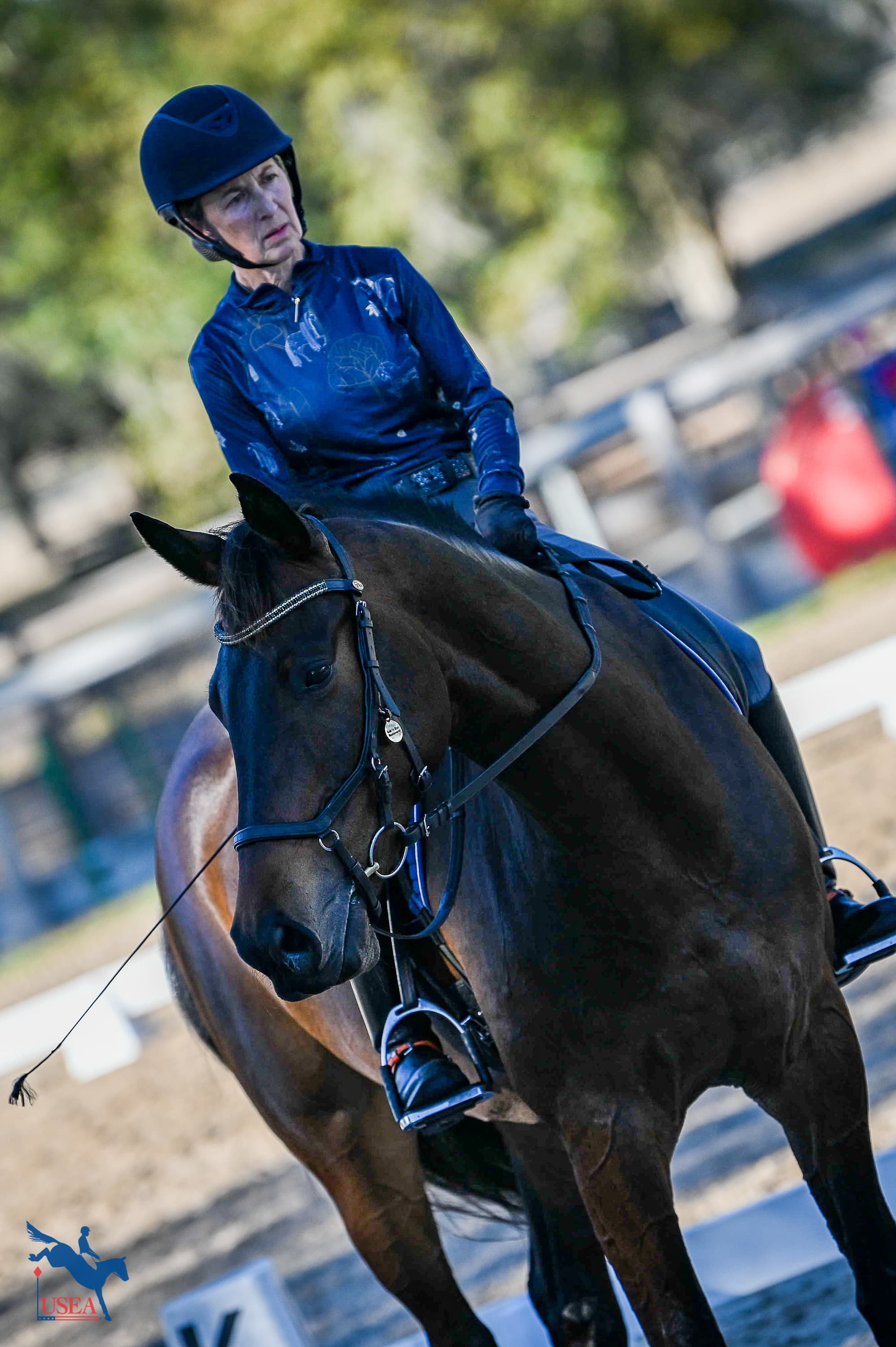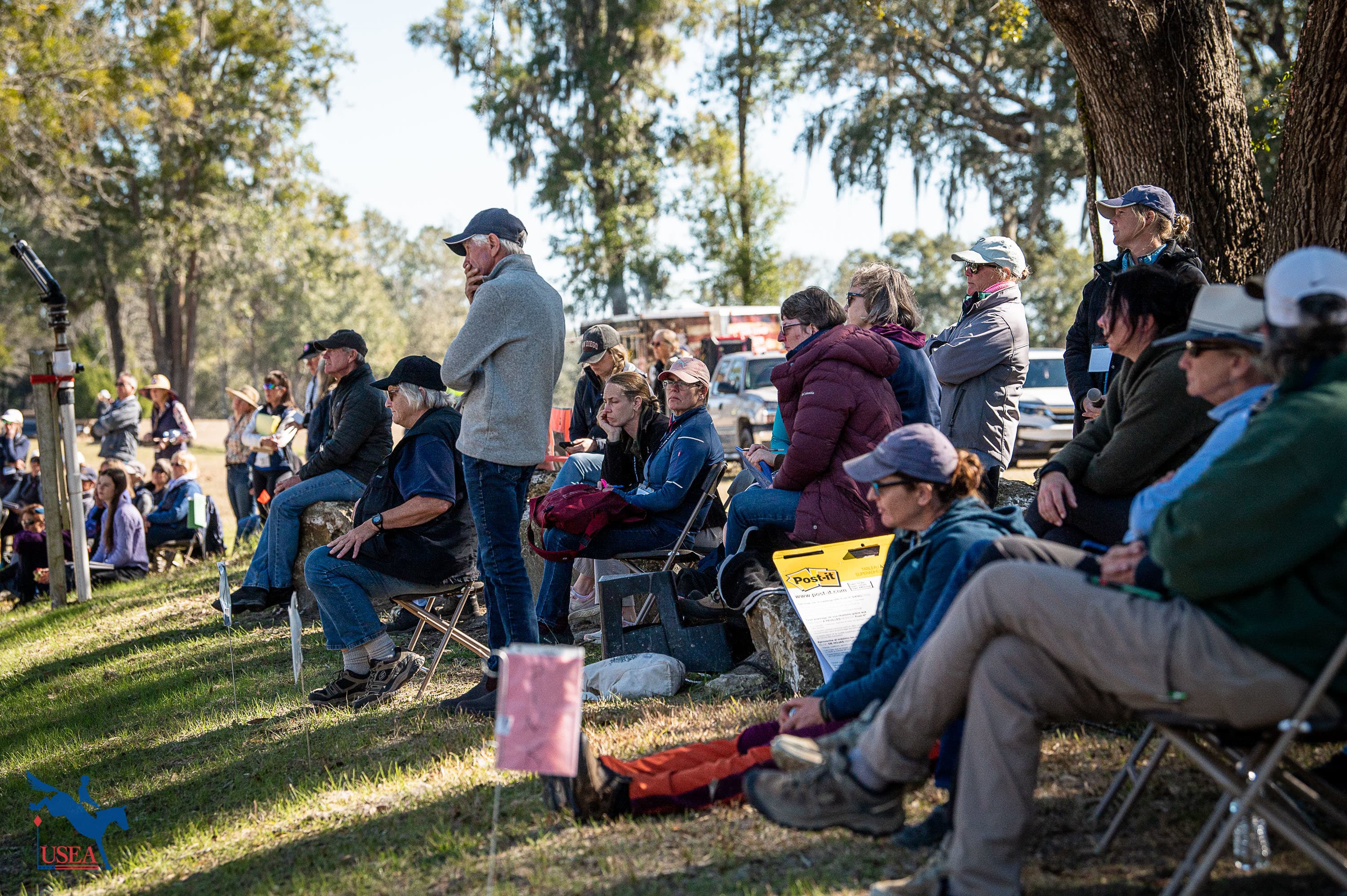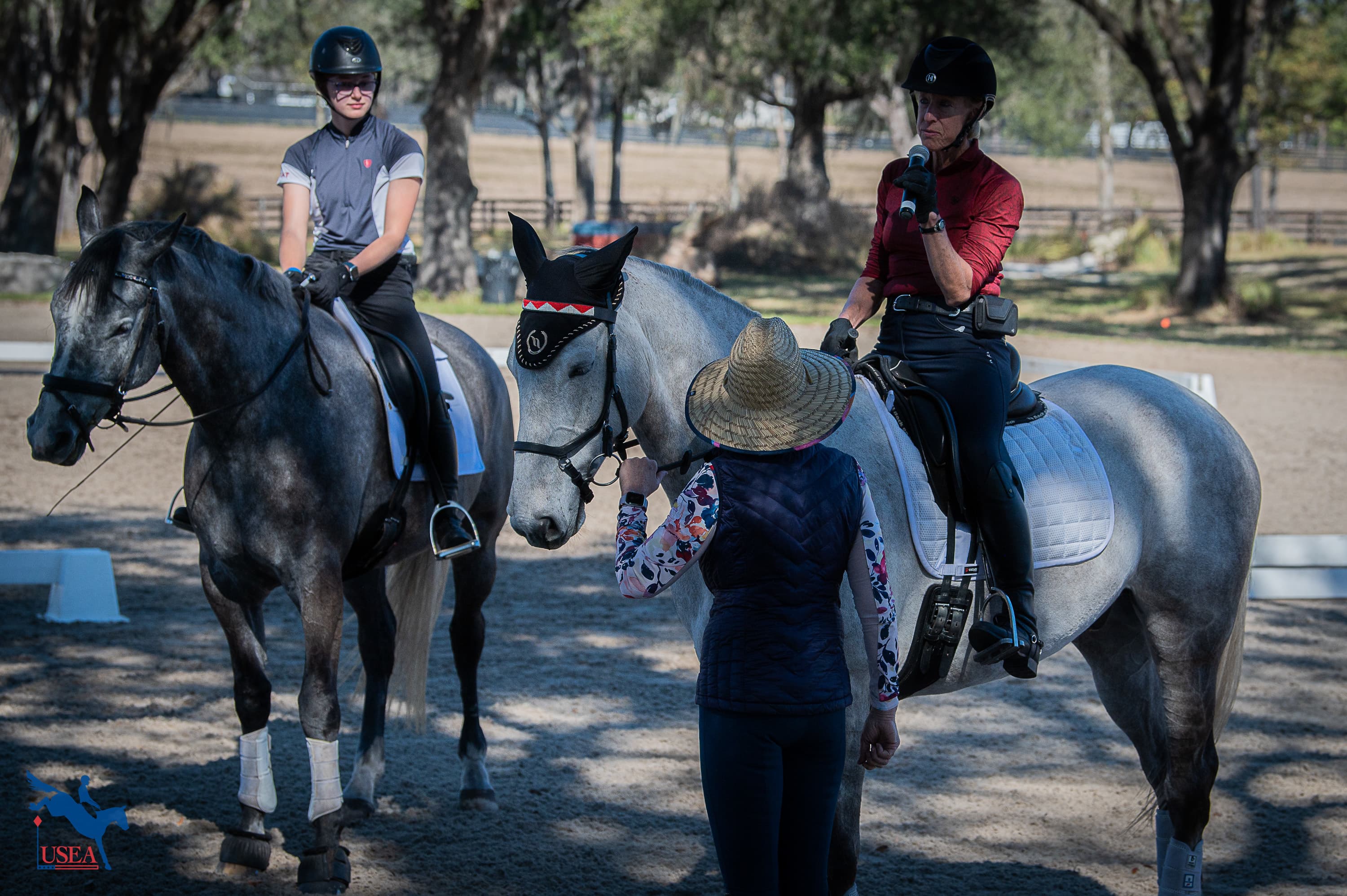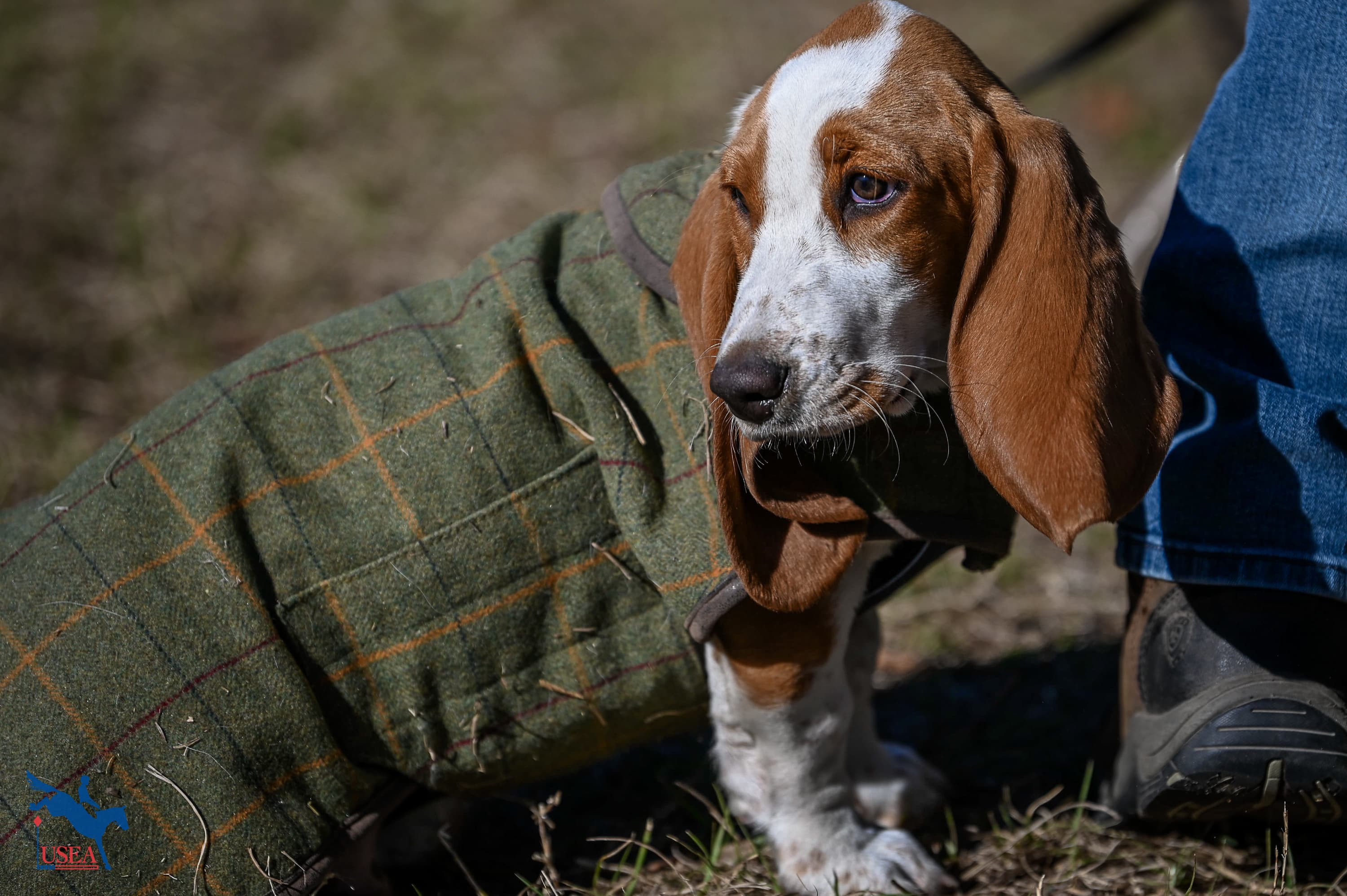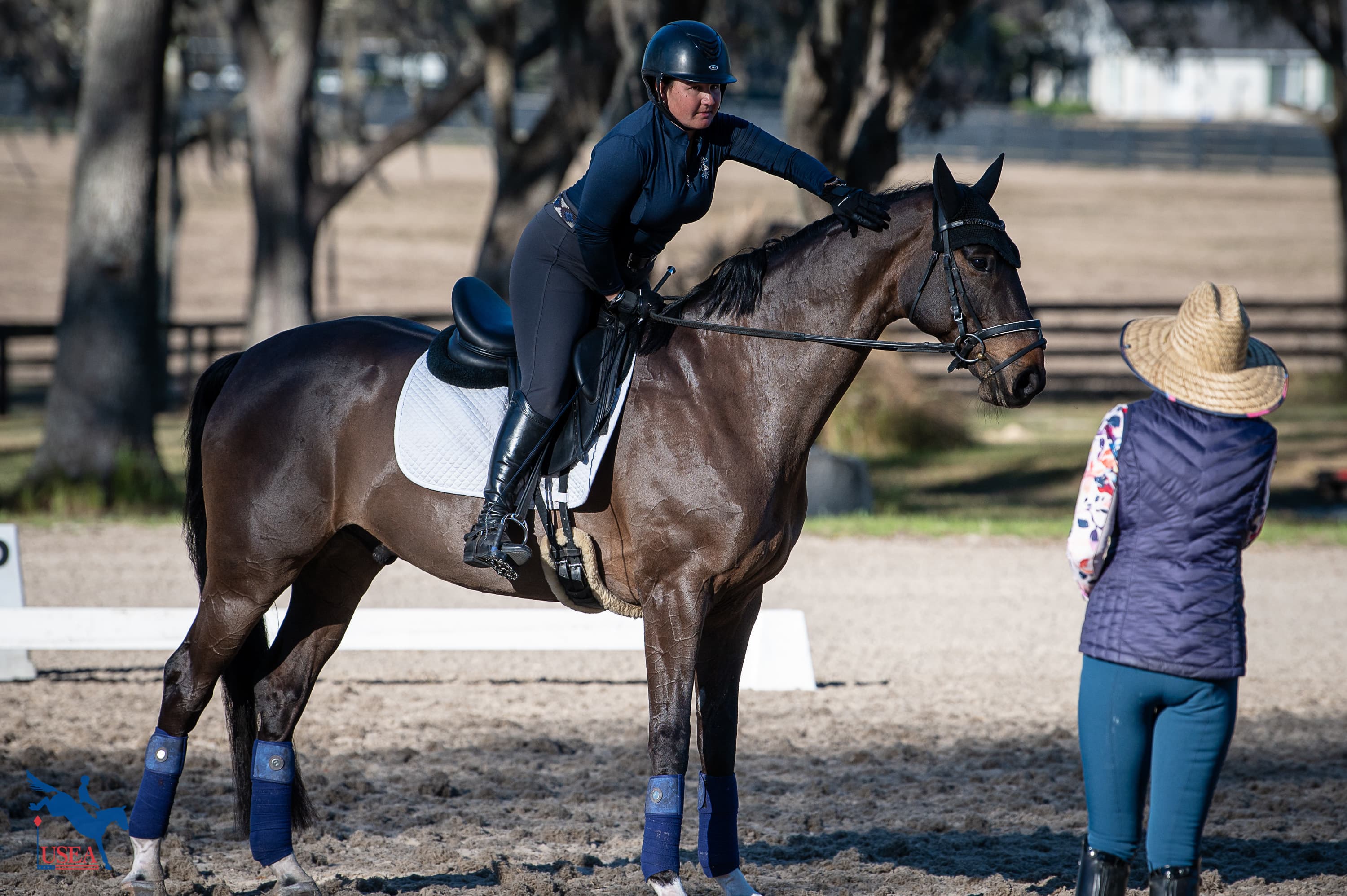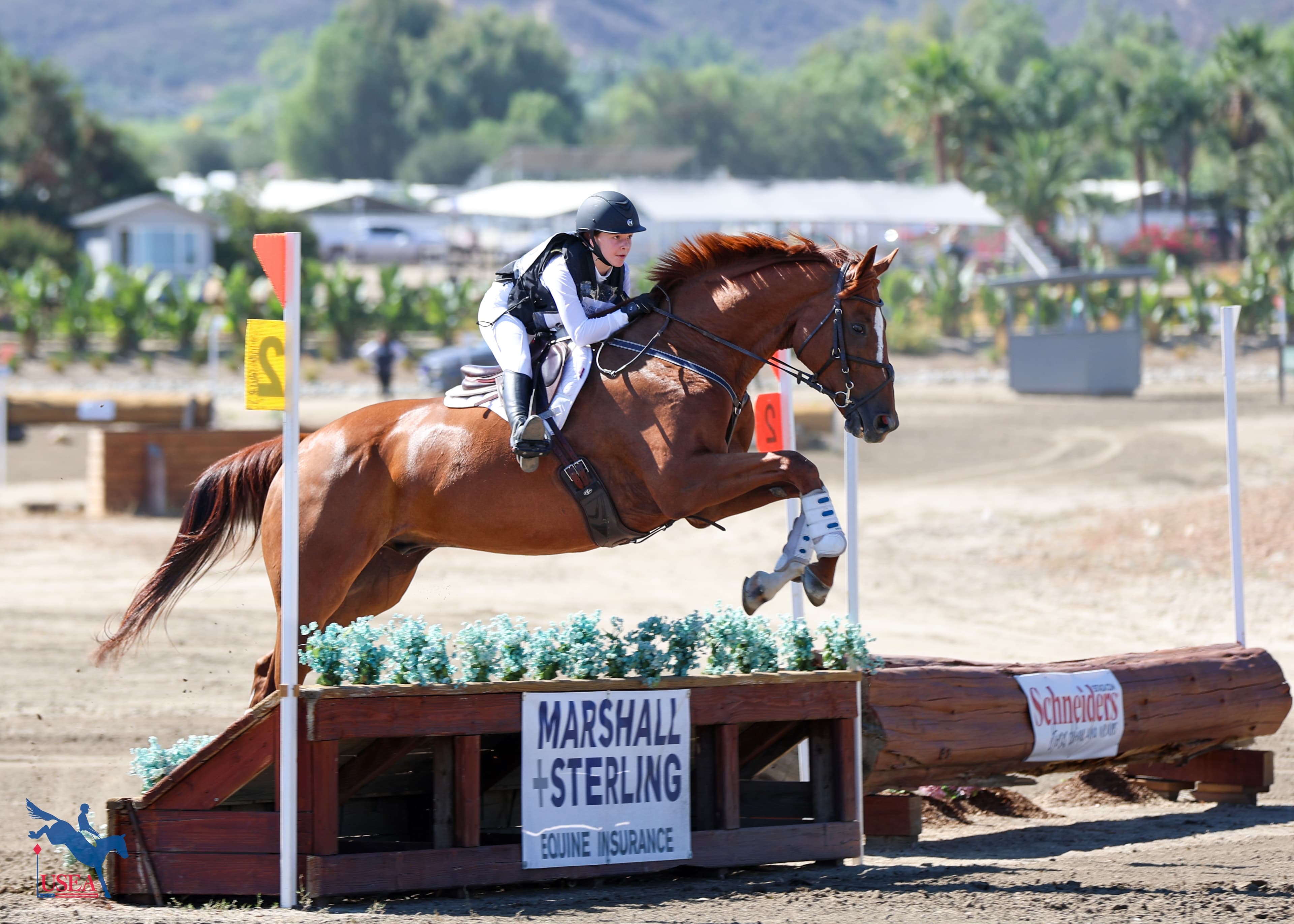It’s All About Energy During Day One of ECP Symposium
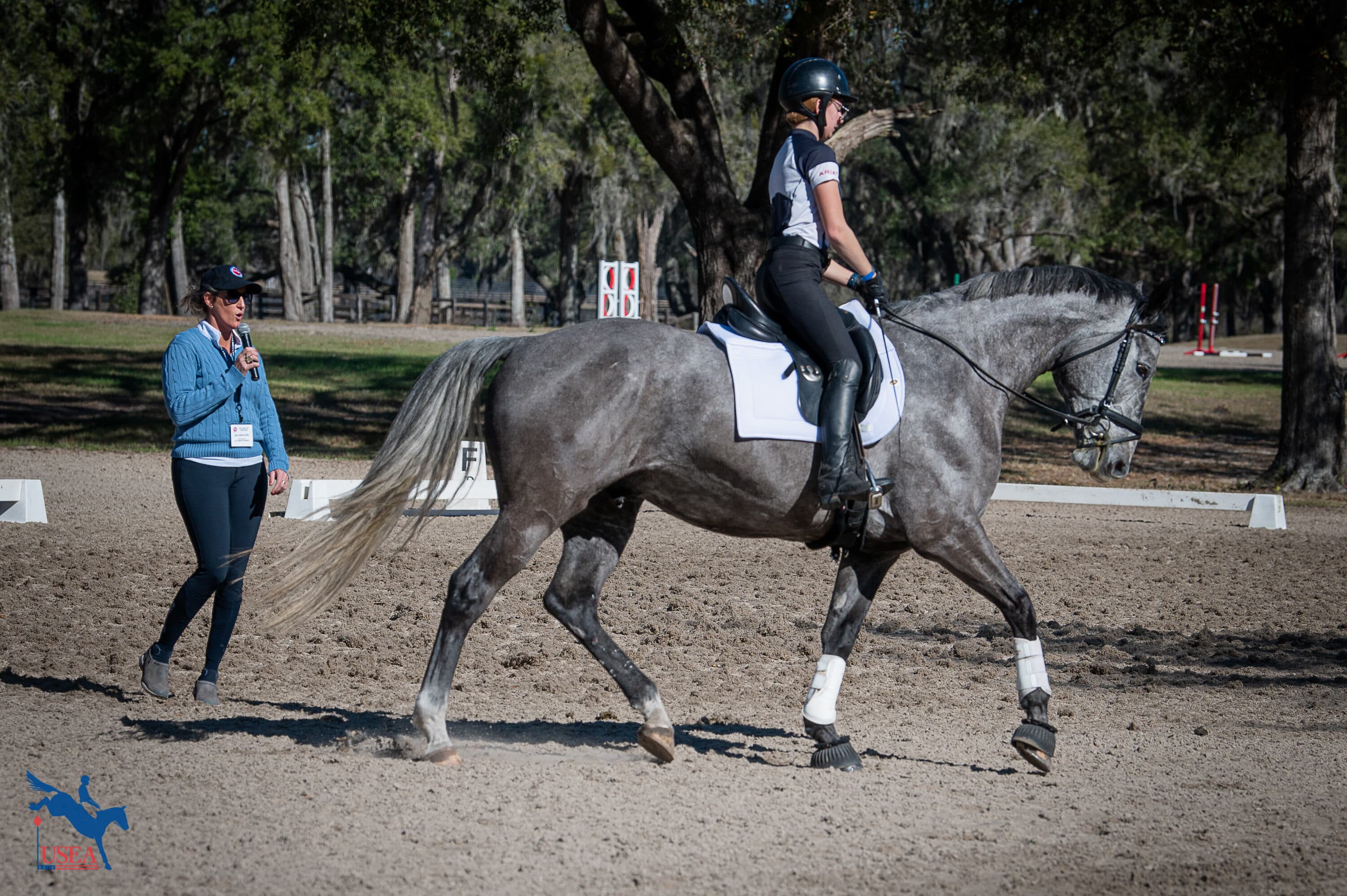
Energy abounded during the first day of the USEA Eventing Coaches Program (ECP) Symposium held at Barnstaple Eventing in Ocala, Florida on Tuesday, January 17th. From the event’s kickoff at 8:00 a.m. this morning to the last demonstration ride of the day, participants, ECP faculty, and demonstration riders were full of excitement for what was to come during the three-day educational event geared towards giving eventing coaches from all backgrounds continuing education so they can be the best instructor they can be.
Following rave reviews of the 2022 Symposium, this year’s event features a similar format including a powerful list of guest speakers who will present on a variety of topics relevant to eventing professionals of all levels, as well as the highly interactive group breakout sessions where participants pair up with ECP Faculty members to evaluate and construct lesson plans based around the warmups ridden by this year’s lineup of demonstration riders. To allow for maximum expansion on the discussion of all three phases, an additional day was added to this year’s schedule, allocating one day per phase. In true eventing fashion, day one was centered around the foundational phase of our sport: dressage.
Following dressage legend Peter Gray’s overview and analysis of the current eventing dressage tests, participants broke up into their small groups to begin the assessment and lesson planning of the day’s riders. As riders from the Beginner Novice through Intermediate levels showed off their skills, the groups worked amongst one another to review the rider’s current skill level based on their self-led warm-up and create a structured lesson plan that would benefit the horse and rider pair that day. Across the different horse and rider pairings, one theme seemed to carry over: energy and how it can be used or managed to better the horse and rider’s scores on the flat.
The first lesson of the day, the Beginner Novice lesson, was taught by ECP Level V instructor Bec Braitling. Demonstration rider Sarah Alexander was a returning demonstration rider from the 2022 event, so she was no stranger to the format of the Symposium, but this year she was aboard a new horse: Boyd, a 5-year-old Trakehner gelding who has only completed a first Starter level events with another rider. Braitling and her group spent great time assessing Alexander and Boyd in their warm-up and ultimately decided on one thing: energy was going to be the partnership's friend for the time being.
“He was a big horse and he wanted to get sort of a bit combative, so we as a group felt like the rider had to have the ability to understand that she had the balance before she could ask for more energy, but ultimately you are more safe when you are going forward,” Braitling reflected after the lesson. “We joke that there is a pace that a horse can go where they can’t buck, and obviously you don’t want to get there in the dressage phase, but ultimately you are almost safer when you can get that horse going a bit more forward and thinking about being a more forward-thinking horse.”
“We had a great group and we actually had Jane Hamlin, who is an unbelievable, top-level dressage rider and judge in my group, and we as a group talked a lot about just sending the rider forward first, but we agreed we needed to make sure she had some tools before she went forward. So we tested if we could send that horse in and out and see what aids he was listening to before just sending her off around the ring on her own.”
Those tools included setting up a circle with cones and tasking the duo to work their way from larger circles outside of the cones to spiraling down to smaller circles within the cones. Braitling started the pair out on this exercise at the trot, before introducing the canter and asking Alexander to send the horse more forward at the canter to get him forward-thinking through the exercise.
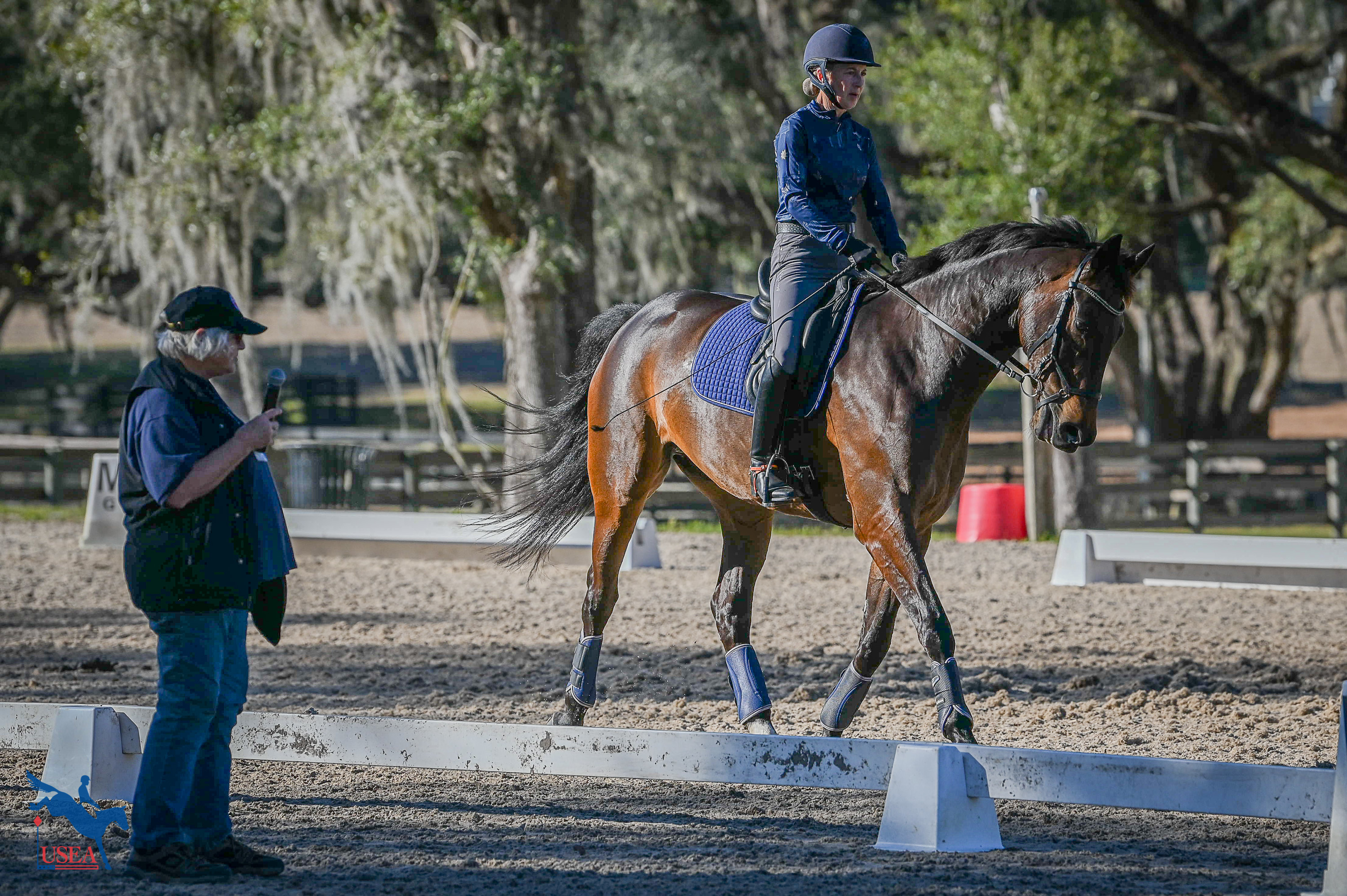
In the Training level demonstration lesson, ECP Level V instructor Phyllis Dawson took over the microphone as the leading instructor and tapped into the concept of energy in a new light – by focusing on getting the horse and rider pair consisting of Robyn Harter and her rising 6-year-old Dutch Warmblood gelding Gold to Blue Monteverdi (Baltic VDL x Adelwise VDL) to move forward to maximize on the horse’s natural gaits.
“We all watched the horse warm up and everyone had some input as to what they saw in the rider and the horse and what they might like to change,” Dawson reflected. “We had the charts that Jennifer [Howlett Rousseau] had encouraged us to make where we had the columns of comments that included what our priorities would be and what exercises we would use to accomplish those things. So we had a lesson plan of exercises, but then as you start the lesson you can really see how the horse and rider respond and finetune which exercises you might use next to benefit them that day.”
Looking back at her demonstration lesson, Dawson shared, “My lesson had a nice horse and a nice rider, but what was missing was the looseness and thoroughness in the horse’s back. It wasn’t so much a lack of energy, as it was the lack of swinging the back and being through, so I chose exercises to encourage the rider to ride the horse forward rather than constricting him with her hand. I felt in the beginning that she was constricting a little bit, but as she rode more forward his movement improved quite a lot. It was maybe out of her comfort zone, and I don’t mean that she was afraid or frightened by that, but she wasn’t sure she could keep him altogether and organized in the bigger trot, but I encouraged her to become that comfort zone. We are always using the exercises to enhance the horse’s natural movement and gait.”
Some of those exercises included having the rider ride the trot with a variety of seats. First Dawson asked her to sit vertically before asking her to lean very far forward and then move to the opposite by sitting backward a touch. She asked the rider to evaluate how each position change impacted the horse’s stride length without her having to pull back on the reins more than necessary. As Dawson encouraged the rider to ask for more from her horse, she noted that the different feel can be hard for a rider to adjust to: “As you ask him to go bigger, more through, and more loose, there will be moments where you wonder if you’ve lost control,” she said to Harter. “You have to stretch your comfort zone to allow yourself to adapt to this new feeling.”
At the conclusion of the day, Dawson reflected on asking a rider to step outside of that comfort zone and how important that can be, when done correctly, for their personal development. “I think you have to encourage the rider to ask a little more and then really truly identify for them when it is better, so you can say, ‘ah there - that is what we are looking for!’ We call those the magic moments where you can tell the rider that that is the feel they want and gradually they can get that on their own more.”
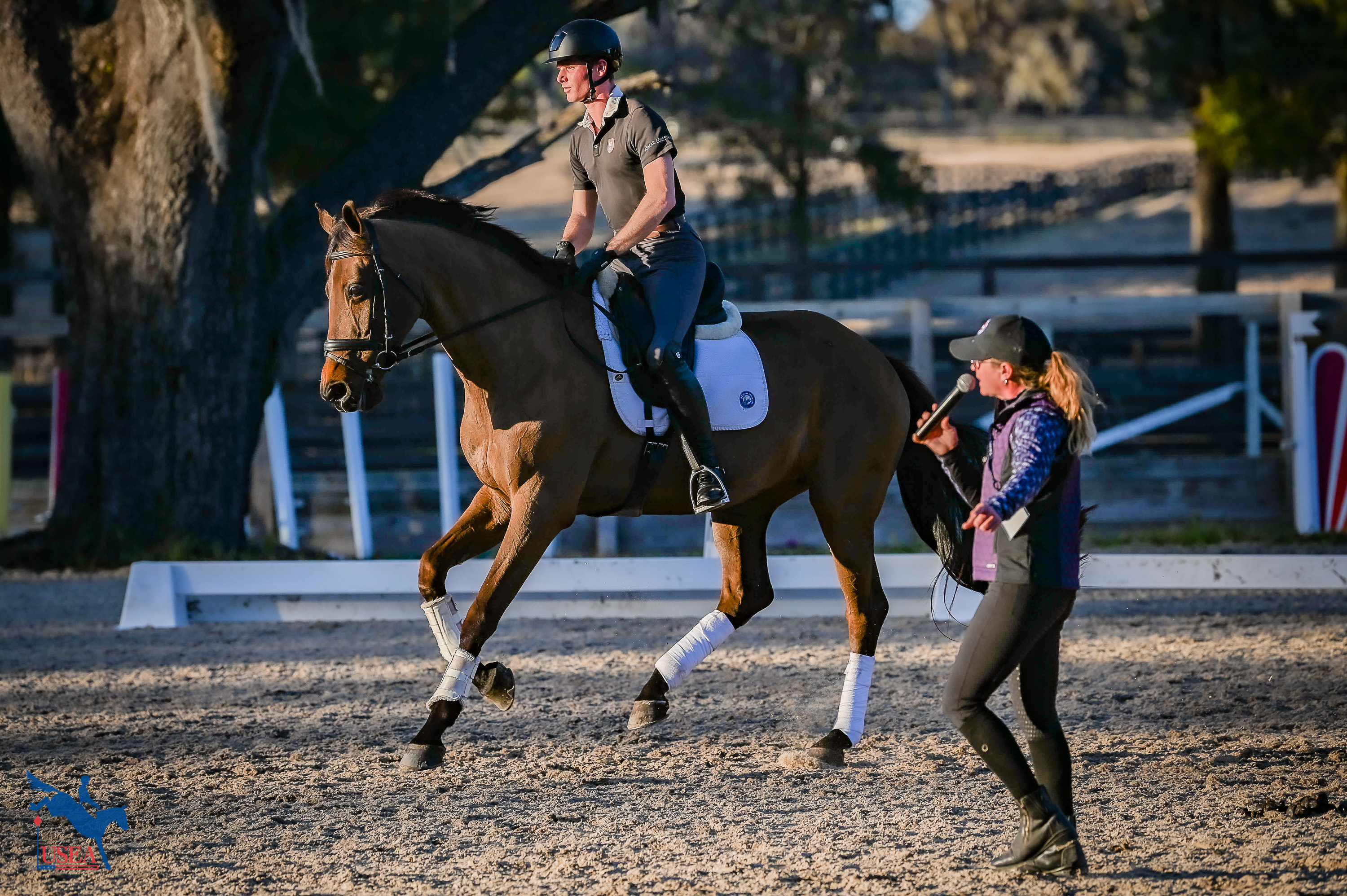
ECP Level V instructor Emily Beshear led the final session of the day, the Intermediate session, and took the theme of energy to a new level with more advanced movements and exercises applicable to rider Carson Crowell and Raylyn Farms Inc's 18-year-old Oldenburg mare RF Scandalous (Carry Gold x Richardia).
“It is a really essential piece to keep pointing people back to,” shared Beshear on the concept of energy. “At the higher levels, energy doesn’t just mean doing big medium trot and big extended canter. We need to find ways to help the riders feel how to increase the energy without the horse getting bigger and understand that flexion doesn’t mean shutting the horse down or shortening them. Our group hit right on that watching the warm-up and felt that [Crowell] really could benefit from feeling how to produce that. It seemed like a typical situation where the rider was trying to piece things together in a quicker fashion, and things were just getting slower and more packaged. So our exercises were kind of tied into the idea of teaching him the feeling of creating more energy and going more forward, but with a lateral movement so that the horse didn’t become longer and the rider didn’t feel as if he needed to use the reins to hold it back while he was telling it to go forward.”
Some of the lateral work that Beshear incorporated into Crowell’s lesson included serpentines around the arena, haunches in and out, and counter-cantering different shapes around the ring. The counter canter work, she reflected, helped the mare to sit back, collect up, and engage in a whole new way that would allow Crowell to feel more forward at the canter.
“It was a fabulous first day here,” she said at the end of the day. “We had quite a range of demo riders where we could see the reality of the different things that we as professionals work through. I love this format with all of the different instructors working with their groups and coming up with game plans, it really lends everyone to kind of seeing different ideas and new ways of addressing situations.”
The second day of the ECP Symposium shifts the focus onto the show jumping phase following a seminar led by Sport Psychologist Dr. Paul Haefner.
To learn more about this week’s ECP Symposium, click here. Onsite registration is available each day during the event. ECP certified and licensed officials can sign up each day for $45 a day, while public participation is $60 a day.
About the USEA Eventing Coaches Program
Instructors are essential to the training of riders and horses for safe and educated participation in the sport of eventing. The USEA Eventing Coaches Program (ECP) was initiated in 2002 to educate all levels of eventing instructors with essential training principles upon which those instructors can continue to build throughout their teaching careers. ECP offers educational workshops and assessments by which both regular instructors, Level I through Level V, Young Event Horse (YEH) instructors, and Young Event Horse professional horse trainers can become ECP certified. Additional information about ECP’s goals, benefits, workshops, and assessments as well as names and contact information for current ECP-certified instructors, YEH instructors, and YEH professional horse trainers are available is available on the USEA website. Click here to learn more about the Eventing Coaches Program.
